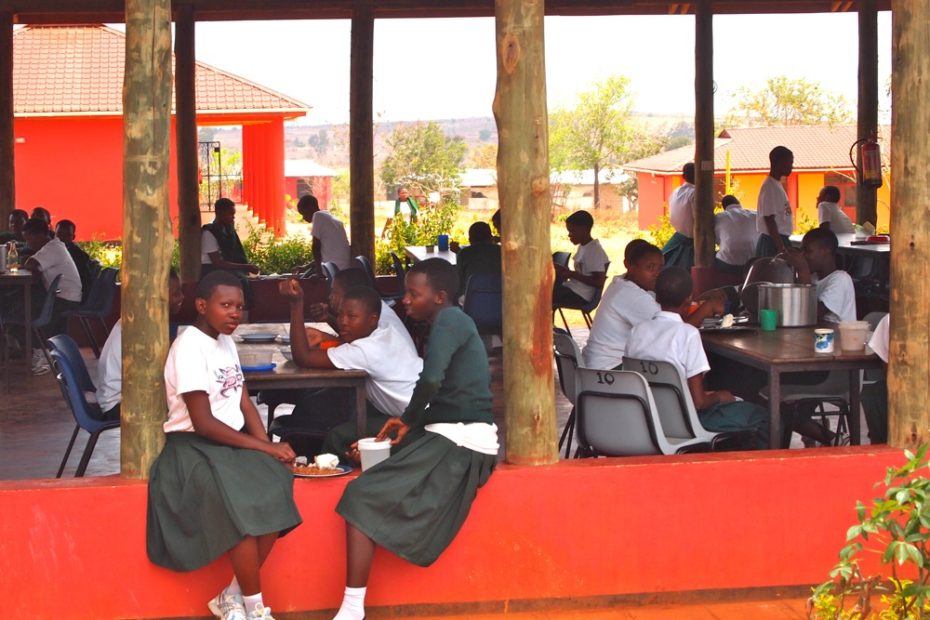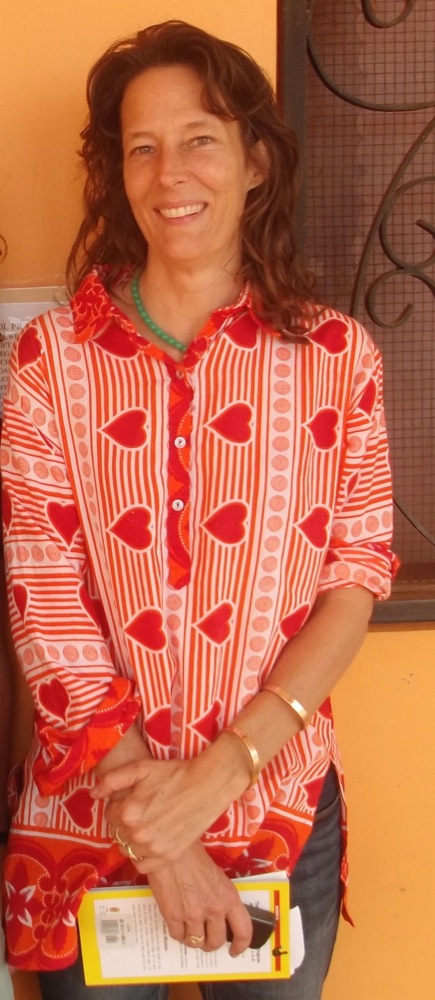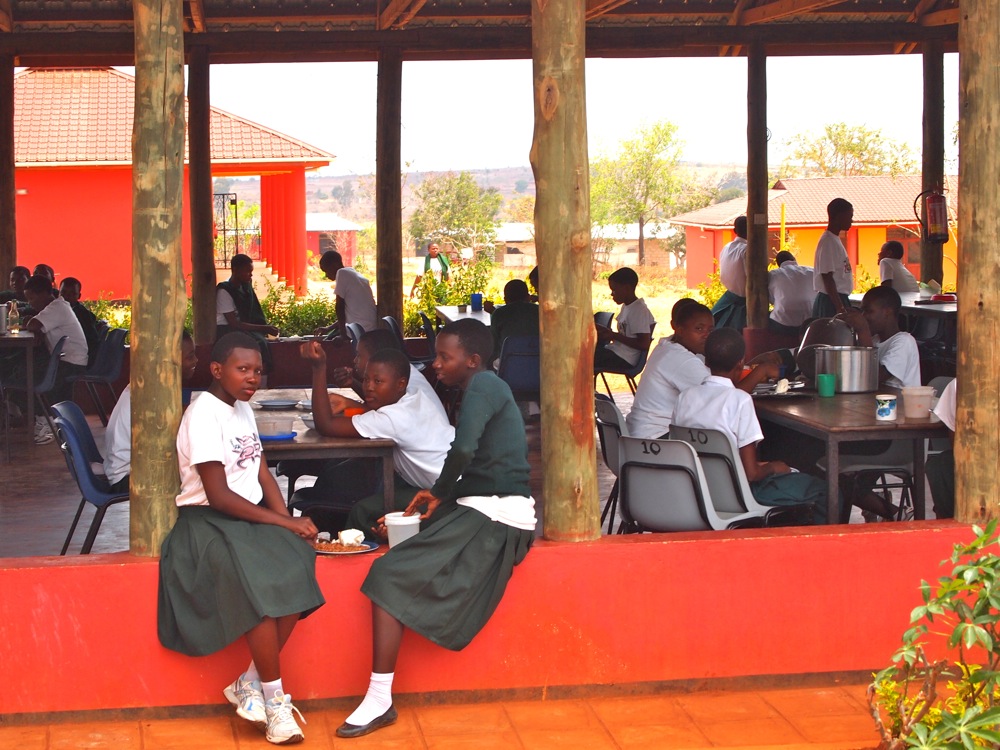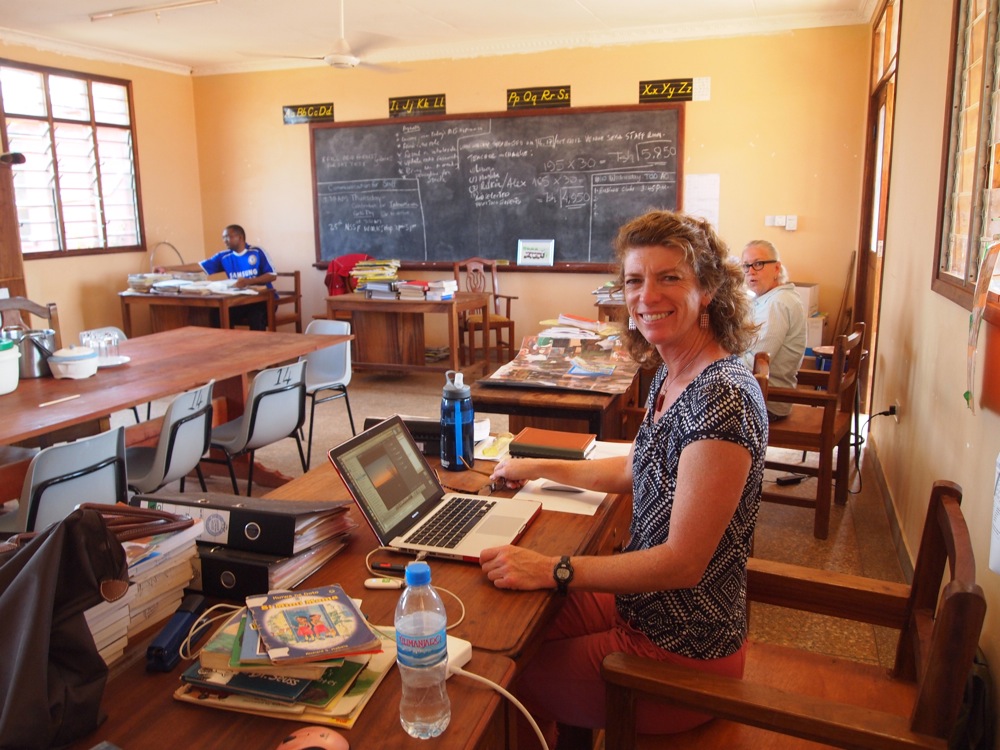HOW THE HECK did I end up volunteering for this particular organization in Africa and what am I doing here?
What is Sega?
The Sega (Secondary Education for Girls’ Advancement) School is a residential secondary school for bright, motivated Tanzanian girls who otherwise would not have access to secondary education due to extreme poverty.
Founded in 2008 and located in Mkundi near Morogoro in central Tanzania, there are currently 150 students boarding at the school, 90 in Forms 1,2 & 3 (Grades 8-10), and 60 students in two transitional remedial classes. Sega aims to be educating 200 girls at the school by 2015.
Founder Polly Dolan, originally from Pennsylvania, has lived in Africa since 1996. Based in Morogoro with her husband and 6-year-old daughter, she directs the school along with a Tanzanian headmistress. Before starting Sega, Polly worked for CARE for several years. Anxious to move from project management and consulting work to something more hands-on, she concluded she could make a difference educating girls and Sega was born.
Two primary sources of funding for Sega are Nurturing Minds, the US based organization started by Polly’s sister Tracey, that raises funds from US donors, and USAID, the US government agency that makes development grants overseas.
Who are Sega girls?
The girls at Sega are a lively bunch. They come from the Morogoro and Iringa areas, many are orphans who are cared for by grandparents or relatives, and most have been out of school for at least a year, frequently because their guardians cannot pay school fees. A few are already mothers. They range in age from 13 to 19. Each day, I’m greeted by girls saying “Good morning Madam April, how are you?”
How I found Sega
It’s a classic networking story! I attended a conference at Stanford on Global Development and Connection Technologies where, standing in line for lunch, I mentioned to a woman from the State Department that I was looking for a way to teach negotiations to girls or women in a developing country. She suggested I speak to the Office of Global Women’s Issues at the State Department.
After some emailing, a person in that office referred me to the chairman of the board at Nurturing Minds. He felt my experience fit perfectly with what Sega needs right now given its stage of development and plan to start several local businesses to help the girls learn about business and entrepreneurship and to support the operating expenses of the school. Sega hopes to be self-sustaining, both financially and environmentally, within 7 years and is implementing a “sustainable schools model” spearheaded by a non-governmental organization, Fundacion Paraguaya.
What am I doing here?
There is lots to do so I’m already busy after only a week. My first assignment is documenting the Lifeskills program put in place over the past year in case other schools want to emulate it. It’s an impressive counseling and mentoring based program designed to increase the confidence, decision making and communication skills of the girls. The goal is that each gain leadership qualities that will encourage them to become leaders in their own communities and country. From what I’ve seen so far, it certainly surpasses anything I’ve seen in U.S. schools.
Soon, I’ll start interviewing staff for an organizational assessment of management and personnel issues the school is facing right now.
I am also chairing the poultry business committee and, in so doing, am learning all about egg marketing and inventory. Also, we are discussing how to integrate the business into the curriculum to make it real for the girls.
Once I’ve made some headway on the above, I’ll start doing market research to enhance business plans for other businesses the school is considering including a small hotel on site and an adult education business in town.
Accomplishments and Challenges
Sega has not yet graduated its first class of girls from Form 4. That will happen in December of 2013. However, national test results so far show Sega students far surpassing students from other schools.
Granted, the public schools in Tanzania are in poor shape with an out-of-date curriculum and teaching style, inadequate facilities and materials, and teachers who frequently don’t bother to show up for class, so the bar is not high.
Sega, however, is a class act with dedicated teachers, attractive facilities, and significant supplemental programs while still following the uninspired national curriculum so the girls can sit for their national exams (O levels for all followed by A levels for some).
Despite the many challenges of educating girls who have little to no support from
home and no history of education in their families, Sega will ensure that most of its students have a far superior start in life to what they would have had without this opportunity.
Do you know of other organizations with similar missions or people that I should know about? I’d like to network with anyone who might have insight or knowledge relevant to my work here or to the school in general. Let me know of any organization or person I should know. Or post a comment or send me an email just to say hi!
Kwaheri, April





April, Sega sounds wonderful. Check out the website for the Girls Education Collaborative http://girlsedcollaborative.org/ This group is based in Buffalo NY and is not a far along as you are but i believe they are working in a region fairly close to you and have many of the same goals. My mom Carole Petro is chair of their board and raising funds for their school and was in Tanzania this summer.
I will certainly check it out. Thanks for asking for the info in your comment from last week’s blog. I will get in contact with her if there is a way to do so via the website or send me her email. This organization is doing an impressive job but check out this awful article to see how far there is to go. April
Tanzania: Massive School Drop Out Disturbing
http://allafrica.com/stories/201210130199.html
BY ANTHONY TAMBWE, 13 OCTOBER 2012
TANZANIA has been cited as one of the countries with the highest number of child pregnancies, with 16,999 girls dropping out of school in 2006 to 2009.
This was said by the deputy Minister for Community Development Gender and children, Ummy Ally Mwalimu during the launch of “Because I am a Girl” campaign organized by Plan International Tanzania.The deputy minister said that school truancy among girls has increased from 11,264 girls in 2009, which is equivalent to 36.2 per cent to 48,026 in 2010, which is equivalent to 72.7 per cent.
She said that these challenges and many more have contributed to the dwindling number in girls who perform well in school, saying that in last year’s form four examinations, only 7 per cent of girls passed.She said that the society is supposed to invest heavily in girl’s education, saying this is a proven way of tackling poverty in most developing nations.
“By educating a girl child, it is one way of saving her from child pregnancy, because experience shows that each year of educating girls give them more chances of making good decisions,” she said.She said that the government will continue taking strict measures against people who impregnate young girls, because according to the law, it is an offence for a man to involve himself in a sexual relationship with a girl who is under 18 years.
The deputy minister said that according to a 2009 report by UNICEF, three out of 10 girls experience sexual abuse before they reach the age of 18 years.”According to this survey, 49 per cent of these abuses take place at home, 23 per cent while the girls head to and from school while 15 per cent takes place in schools,” she said.
She said that the government through her ministry will continue to educate the society on dangers of early pregnancies, because it affects these children physically, psychologically and emotionally.The Plan International Tanzania Director David Muthungu said that the United Nations has given priority the fight against early pregnancies because it is one of the vices used to deny them the girls their basic rights.
He said that statistics indicate that 10 million girls are forced into early marriages while in developing countries one out of three girls gets married before they reach the age of 18.Muthungu said that Plan with the help of Canada was in the forefront of lobbying for the United Nations to recognize the day of the girl child.
“The aim of this campaign was to improve the living conditions of girls and give them an equal opportunity in education, basic studies and protect them against gender violence,” he said.
He said that among other things, the campaign will also work to increase skills, knowledge and awareness of girl’s vulnerability to gender based violence within family, school and communities.
Hi. Just saw you wrote back!! Anne Wadsworth wrote To you yesterday. She is the exec director of Girls Ed Collaborative (GEC) and I know she wants to correspond w you directly. And you can always write to me off this blog but on my email at mplaurenzi@optonline.net
I am so impressed with your commitment to Sega and also to your changing life course for a new adventure! Keep the posts coming. They are wonderful. Peace, M
So impressed April! Way to find your path :). I’ll keep looking for updates. Hugs. Leesa
Hiya April, I am so excited for you!! This sounds really cool. I think we spoke about the RtR people. Let me know if I can try to connect you in Africa. Might be able to swap experiences.
xxo have fun!!! Kathleen
Very inspiring, April! Check out the work of The Hunger Project, http://www.thp.org THP is committed to the sustainable end of hunger and extreme poverty for all humanity. They focus on empowering the leadership of rural women. I began volunteering for THP in 1981, and started a THP group at Princeton U way back then. Recently I moved to the Philippines, where I am starting a business that incorporates THP into its vision: http://www.saiffsolutions.com/home/about/vision
Barry Saiff ’83
No idea how I missed you first 3 entries but now I’m caught up! So excited for you. What an amazing and worthy adventure. Keep up the posts!
Hi April – Margarethe introduced our organization in an earlier post……so I am now introducing myself! Anne Wadsworth, ED at Girls Education Collaborative. Know time online can be problematic and limited, but if you have a moment, would love to connect with you:
anne@girlsedcollaborative.org
Thinking about you and am very inspired! I would love to vist and see the great work you are doing first hand!